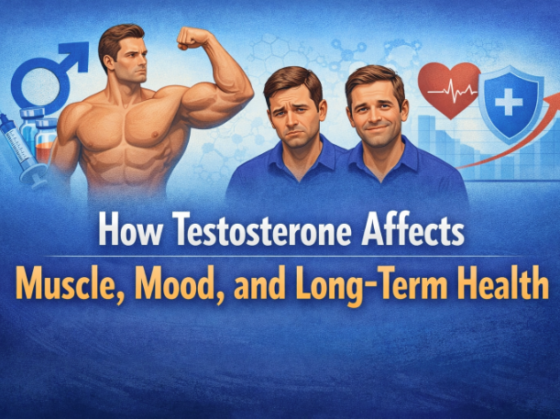Exercise is widely recognized for its physical health benefits, but its positive impact on mental health is equally significant. Engaging in regular physical activity can be a powerful tool in managing and improving mood, offering a natural alternative or complement to traditional treatments for mental health conditions like anxiety and depression.
How Exercise Affects the Brain
Regular exercise stimulates the production of endorphins, which are chemicals in the brain that act as natural painkillers and mood elevators. These endorphins play a crucial role in reducing stress and enhancing a sense of well-being. Additionally, exercise increases the production of neurotransmitters like serotonin and norepinephrine, which help regulate mood. This biochemical boost can be as effective as medication for anxiety & depression, providing relief without the potential side effects associated with pharmaceuticals.
Exercise as a Natural Antidepressant
Numerous studies have demonstrated that physical activity can significantly reduce symptoms of depression. Exercise promotes neural growth, reduces inflammation, and fosters feelings of calm and well-being. For individuals looking for alternatives to pills for anxiety and depression, incorporating regular exercise into their routine can be a game-changer. Activities such as walking, running, yoga, and strength training have all been shown to help alleviate depressive symptoms.
The Impact of Exercise on Anxiety
Exercise also has a profound effect on anxiety. Physical activity helps reduce tension and stress, boosts physical and mental energy, and enhances well-being through the release of endorphins. These effects can be particularly beneficial for those suffering from anxiety disorders. While medication for anxiety & depression can be effective, exercise offers a natural and accessible way to manage anxiety symptoms, often enhancing the effectiveness of other treatments.
Creating a Sustainable Exercise Routine
For those new to exercise, starting a routine can seem daunting. However, it’s important to remember that even modest amounts of physical activity can make a difference. The key is to find an activity that you enjoy and can maintain over the long term. Whether it’s dancing, cycling, swimming, or hiking, the most important factor is consistency. Gradually increasing the intensity and duration of your workouts can help you build a sustainable routine that supports mental health.
The Social Benefits of Exercise
Engaging in physical activities can also provide social benefits that improve mood. Joining a sports team, attending fitness classes, or simply walking with friends can offer opportunities for social interaction, which can help combat feelings of isolation and loneliness. Social support is a critical component of mental health, and the connections formed through group exercise can provide a valuable network of encouragement and motivation.
Exercise as Part of a Holistic Approach
While exercise is a powerful tool for improving mood, it is most effective when combined with other strategies. A holistic approach to mental health might include therapy, medication for anxiety & depression, a balanced diet, sufficient sleep, and stress management techniques. By integrating exercise into a broader mental health strategy, individuals can maximize their chances of achieving and maintaining emotional well-being.
Conclusion
Incorporating regular exercise into your routine can have a profound impact on your mood and overall mental health. While medication and pills for anxiety and depression can be part of a treatment plan, exercise offers a natural and effective way to boost mood and alleviate symptoms. For more information on how to manage anxiety and depression, visit directpilluk.com. By embracing a holistic approach that includes physical activity, individuals can take significant steps towards improving their mental health and overall quality of life.











